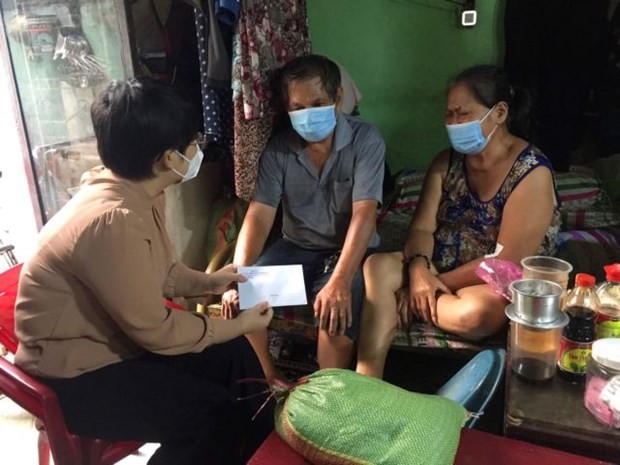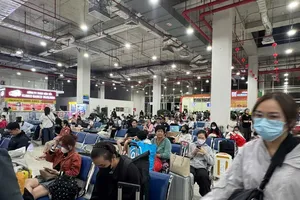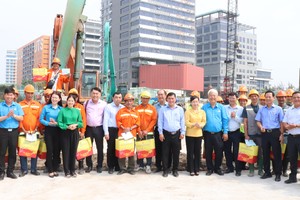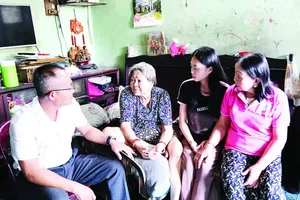 |
| HCMC’s District 5 official visits and presents a gift to a local disadvantaged household. (Photo: VNA) |
As part of the program, the city will offer a credit package worth around VND1.7 trillion ($72.2 million) at preferential interest rates, nearly VND420 billion ($17.8 million) in non-refundable support, and VND16 billion ($679,200) in the sustainable poverty-reduction program at all levels.
Le Van Thinh, permanent deputy head of the city’s Steering Committee for Sustainable Poverty Reduction Program, said HCMC aimed to reach its target of having no poor households by the end of 2023 according to standards for the 2021-2025 period.
Under the city’s poverty standards for the 2021-2025 period, a poor household has an average income of below VND36 million ($1,530) per person per year, and a near-poor household VND36 million to VND46 million ($1,950).
The city aims to reduce the number of poor households by 0.38 percent and the number of near-poor households by 0.28 percent, and increase the poor’s average per capita income.
Measures to help the poor include loans, vocational training, job introduction and scholarships, as well as support for education, housing, healthcare, and legal aid for the poor and near-poor.
The steering committee has asked the Party committees and authorities at all levels and sectors to strengthen information and communication activities to raise public awareness of the meaning, objectives and goals of the poverty reduction program.
Localities should combine the poverty reduction program with their annual socio-economic development programs, Thinh said.
The solutions and policies supporting socio-economic development are implemented in the direction of gradually reducing financial assistance and increasing support for production and businesses to help poor and near-poor households to lift themselves out of poverty.
Localities and departments have also been asked to regularly review and update the list of poor households to promptly provide support.
Last year, the city had 16,100 fewer poor households and 9,700 fewer near-poor households.
By the end of last year, the whole city had more than 21,300 poor households and 18,068 near-poor households, accounting for 0.84 percent and 0.71 percent of the city's total households, respectively.
























